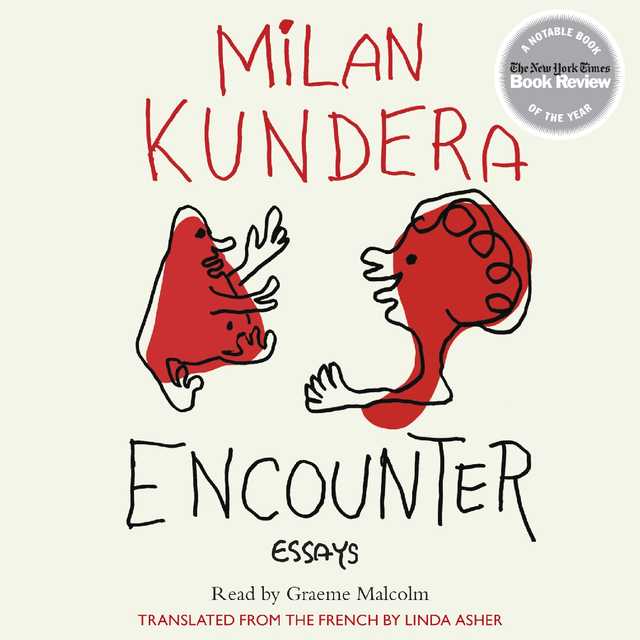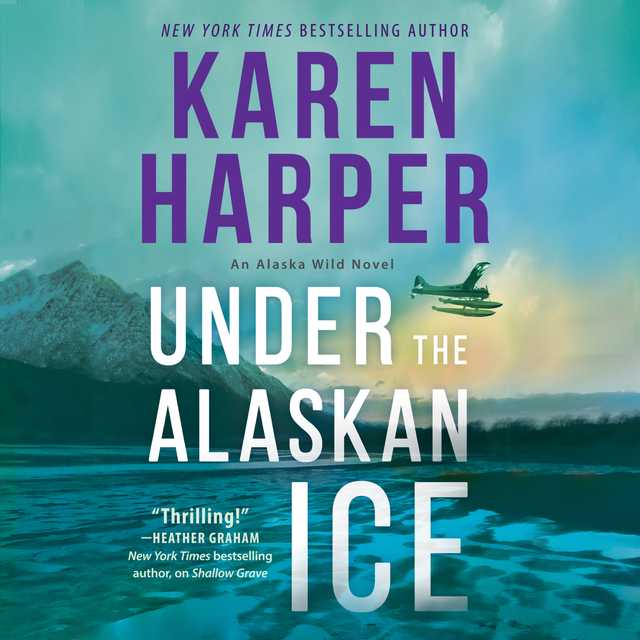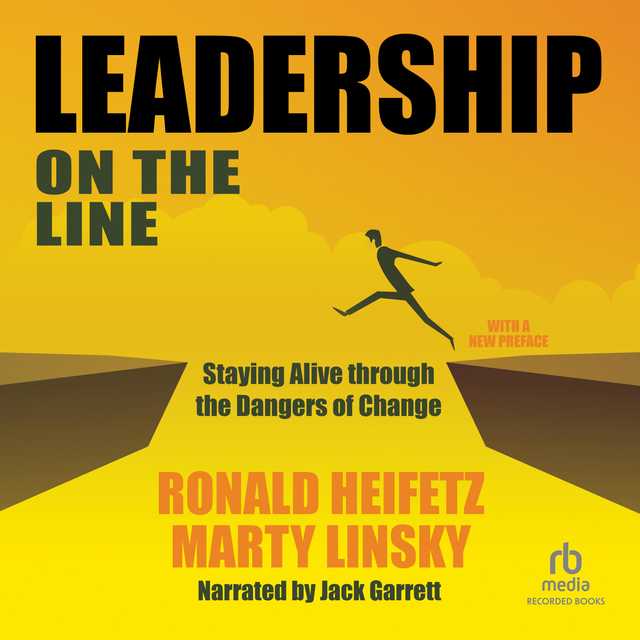Encounter Audiobook Summary
“Cultivated, worldly, charming and spirited…Kundera’s values are sane and humane; his impulses generous; his taste, overall, unimpeachable.” – Phillip Lopate, San Francisco Chronicle
Encounter is the latest addition to the acclaimed body of literary criticism from beloved author Milan Kundera (The Unbearable Lightness of Being, The Book of Laughter and Forgetting). Novelist Russell Banks writes, “Not since Henry James, perhaps, has a fiction writer examined the process of writing with such insight, authority, and range of reference and allusion.” In Encounter, Kundera brilliantly reflects on some of his signature themes and old loves (Rabelais, Fellini, Janacek, Malaparte), on literature, on morality, and on the transformation of civilization as we know it.
Other Top Audiobooks
Encounter Audiobook Narrator
Graeme Malcolm is the narrator of Encounter audiobook that was written by Milan Kundera
Milan Kundera is the author of the novels The Joke, Farewell Waltz, Life Is Elsewhere, The Book of Laughter and Forgetting, The Unbearable Lightness of Being, and Immortality, and the short-story collection Laughable Loves–all originally written in Czech. His most recent novels Slowness, Identity, and Ignorance, as well as his nonfiction works The Art of the Novel, Testaments Betrayed, The Curtain, and Encounter, were originally written in French.
About the Author(s) of Encounter
Milan Kundera is the author of Encounter
More From the Same
- Author : Milan Kundera
- The Festival of Insignificance
- The Joke
- Testaments Betrayed
- Farewell Waltz
- The Curtain
- Publisher : HarperAudio
- Abraham
- American Gods [TV Tie-In]
- Dead Ringer
- House of Sand and Fog
- Prey
Encounter Full Details
| Narrator | Graeme Malcolm |
| Length | 4 hours 21 minutes |
| Author | Milan Kundera |
| Publisher | HarperAudio |
| Release date | September 25, 2012 |
| ISBN | 9780062215635 |
Additional info
The publisher of the Encounter is HarperAudio. The imprint is HarperAudio. It is supplied by HarperAudio. The ISBN-13 is 9780062215635.
Global Availability
This book is only available in the United States.
Goodreads Reviews
Glenn
February 26, 2021
Czech-born author Milan Kundera (born 1926) who went into exile in France in 1975. In this collection of short essays, Milan Kundera shares reflections on a number of topics and writers, artists and composers from Francis Bacon, Philip Roth and Juan Goytisolo to Beethoven, Carlos Fuentes, Oscar Milosz and Curzio Malaparte, to name several. However, a reader need not be familiar with these artists and writers to benefit from the many wisdom nuggets sprinkled throughout the book’s 180 pages. As a way of sharing some of Kundera’s wisdom and insights, here are a number of quotes from the text along with my modest comments:Francis Bacon - Triptych of portraits of Henrietta Moraes“The painter’s gaze comes down on the face like a brutal hand trying to seize hold of her essence, of that diamond hidden in the depths. Of course we are not certain that the depths really do conceal something – but in any case we each have in us that brutal gesture, that hand movement that roughs up another person’s face in hopes of finding, in it and behind it, something that is hidden there.” ---------- Kundera goes on to question to what degree of distortion does a beloved person still remain a beloved person. Actually, I myself take a different approach: I attempt to seize the hidden true essence of a person not by any brutal gesture but by remaining completely still and listening. Usually quite a unique experience for people – to be permitted the space to be heard. Much different than someone taking their words as a means to insert their own opinions and views.“The acceleration of history has profoundly transformed individual lives that, in centuries past, used to proceed from birth to death within a single historical period; today a life straddles two such periods, sometimes more. Whereas history used to advance far more slowly that human life, nowadays it is history that moves fast, it tears ahead, it slips from a man’s grasp, and the continuity, the identity of a life is in danger of cracking apart.” ---------- I myself have lived through a few phases of history. Turns out, I love our current international community where we can speak to one another across the globe instantly. As for the pre-internet, pre-Goodreads world where people were cut off from one another and had to filter their reflections and experiences through conventional publishers – good riddance! There is one aspect of life I have absolute no use for – nostalgia. My sense is people who rely on nostalgia are asleep to the present, deserving of good whack on the back to wake up to their current life. “Scarcely 1% of the world’s population are childless, but at least 50% of the great literary characters exit the book without having reproduced. . . . All Stendhal’s protagonists are childless, as are many of Balzac’s; and Dostoyevsky’s and in the century just past, Marcel, the narrator of “In Search of Last Time,” and of course all of Musil’s major characters.” ---------- I suspect the various authors wanted their novel’s characters set free to reflect and act in interesting and unusual ways so as to further propel their story. None of those mundane tasks of changing dippers, attending their kid’s organized sports and dealing with their kid’s desires and wants – how conventional, unexceptional and boring!French novelist Anatole France (1844-1924)“The funeral cortege that followed Anatole France to his grave was several kilometers long. Then everything changed. Aroused by his death, four young Surrealist poets wrote a pamphlet against him.” ---------- As Kundera explains, the surrealists desired a world of pure imagination and poetry, a world of painting of dreams and improbable visions; none of that irony, skepticism and seasoned wisdom at the very core of a novel. Matter of fact, they dismissed the novel as a prime form of artistic expression. “When I was a young man, trying to find my way in a world sliding toward the abyss of a dictatorship whose reality no one had foreseen, desired, imagined, especially not the people who had desired and celebrated its arrival, the only book that managed to tell me anything lucid about the unknown world was Anatole France’s “The Gods Are Thirsty.” ---------- I love how Kundera found refuge in a novel during his own personal time of crisis, during a bleak episode in his country’s history. A novel can be a second world for us during our own times of crisis, a time when the outer, material, day-to-day world appears hostile, even sinister. “In the novels of Anatole France humor is constantly present (though always subtle); in another book, La Rôtisserie de la reine Pédauque, one can’t help enjoying it, but what’s humor doing on the bloody terrain of one of the worst tragedies in history? Yet that is exactly what is unique, fresh, admirable: the skill to resist the nearly obligatory pathos of so somber a subject. For only a sense of humor can discern the humorlessness in others.” ---------- I recall how Kierkegaard said that people who lack a sense of humor become an object of humor themselves. Actually, the longer I live, the less seriously I take all those very serious people I encounter - people who are entirely serious strike me as complete dullards. “This explains why “The Gods Are Thirsty” has always been better understood outside France than within it. For such is the fate of any novel whose action is too tightly bound to a narrow historical period: fellow citizens automatically look for a document of what they themselves experienced or passionately debated; they look to see if the novel’s image of history matches their own; they try to work out the author’s political stances, impatient to judge them. The surest way to spoil a novel.” ---------- Isn’t it curious how many authors find their true audience on the other side of the globe? As an American, I am always pleasantly surprised when I read praise and perceptive observations about American authors (authors I have no particular love for myself) such as John Steinbeck or Ernest Hemingway from readers in such places as India and Japan. “I say “I love Joseph Conrad.” And my friend says, “Me, not so much.” But are we talking about the same writer? I’ve read two Conrad novels, he just one, and it’s one I don’t know. And yet each of us, in all innocence (in all innocent impertinence), is sure he has an accurate idea of Conrad.” ---------- I enjoy Kundera admitting how he takes his own reading of a famous author as accurate, yet on deeper reflection, acknowledging how his reading and understanding is limited and relatively superficial.Iannis Xenakis (1922 – 2001) - Greek-French composer Xenakis does not stand against some earlier phase of music; he turns away from all of European music, from the whole of its legacy. He locates his starting point somewhere else: not in the artificial sound of a note separated from nature in order to express a human subjectivity, but in the noise of the world, in a “mass of sound” that does not rise from inside the heart but instead comes to us from the outside, like the fall of the rain, the racket of a factory, or the shouts of a mob.” ---------- Kundera notes how Xenakis’s face and body were deformed as the consequence of the horrors of war, a deformation that left a permanent record of the insanity of much of world culture on his body, propelling the composer to look elsewhere than tradition for musical inspiration.Vera Linhartova (born 1938) - Czech writer and art historianIn the 1960s Vera Linhartova was one of the most admired writers in Czechoslovakia, the poetess of a prose that was meditative, hermetic, beyond category. . . . Linhartova: “My sympathies lie with the nomads, I haven’t the soul of a sedentary myself. So I am now entitled to say that my own exile has fulfilled what was always my dearest wish: to live elsewhere.” When Linhartova writes in French is she still a Czech writer? No. Does she become a French writer? No, not that either. She is elsewhere.” ---------- Thus is exile in our post-modern world. I suspect many who are reading these words consider themselves exiles. I myself do not watch TV or read newspapers or listen to pop music, do not go to movies or support a sports team, do not drink or smoke, do not own a car or seek out gossip, thus, in a very real sense, I am an exile to the country and society I have lived in all of my life. Ah, the postmodern world!
Ahmad
October 08, 2020
Une rencontre = Encounter, Milan KunderaEncounter originally published: March 28, 2009. Milan Kundera's new collection of essays is a passionate defense of art in an era that, he argues, no longer values art or beauty. With the same dazzling mix of emotion and idea that characterizes his novels, Kundera revisits the artists who remain important to him and whose works help us better understand the world we live in and what it means to be human. An astute reader of fiction, Kundera brings his extraordinary critical gifts to bear on the paintings of Francis Bacon, the music of Leos Janacek, and the films of Federico Fellini, as well as the novels of Philip Roth, Fyodor Dostoyevsky, and Gabriel García Márquez, among others. He also takes up the challenge of restoring to its rightful place the work of Anatole France and Curzio Malaparte, major writers who have fallen into obscurity.تاریخ نخستین خوانش: روز چهارم ماه جولای سال 2014میلادیعنوان: مواجهه؛ نویسنده: میلان کوندرا؛ مترجم: فروغ پوریاوری، تهران، آگه، 1392؛ در 218ص؛ شابک 9789643292898؛ موضوع نوشتارها و نقدها از نویسندگان چک - سده 21ممقالات، نقدها، و مصاحبه های «میلان کوندرا» نویسنده ی «چک» است، کتاب نُه بخش است، در بخش نخست نگارنده به شرح نقد و نظرات خود دربارة رمانهای ماندگاری همچون «صد سال تنهایی»، و «ابله»، پرداخته است، و در بخشهایی گفتگوهای او در رابطه با آوانگاردها، و دیگر آثار آمده است؛ «میلان کوندرا» در بخش «در جستجوی فرم» میگویند «نویسندگان بزرگی وجود دارند که با قوة فکر خود مات و مبهوتمان میکنند، اما با خود علامت نوعی نفرین دارند: آنها برای گفتن آنچه باید بگویند، هرگز فرم نویی را نمییابند که همان قدر که به گونه ای جدایی ناپذیر با شخصیتشان در پیوند است، با آرمانهاشان نیز پیوند داشته باشد»؛تاریخ بهنگام رسانی 17/07/1399هجری خورشیدی؛ ا. شربیانی
Luna
July 02, 2022
Del género señor hablando de señores, pero igualmente está bien. En especial lo textos sobre Anatole France y Philip Roth.
Marija
January 14, 2023
I loved it so much! So insightful, educational, it is wonderful to see the thoughts of Kundera. Oh how cool would it be if I could meet him and listen to him discuss all of these topics in person. Highly recommend!
Farhan
October 16, 2015
. . . an encounter with my reflections and my recollections, my old themes (existential and aesthetic) and my old loves . . .Still obsessed by recollections of the country which I had just left and which still remained in my memory as a land of interrogations and surveillance [on Francis Bacon] The painter's gaze comes down on the face like a brutal hand trying to seize hold of her essence[on Picasso] It is the painter's light gesture that transformed elements of the human body into a two-dimensional fromBut what is hidden there [in portrait]? Its "self"The faces are lamentably alikeBacon's portraits are an interrogation on the limits of the selfFor a long time Bacon and Beckett made up a couple in my imaginary gallery of modern artWhen one artist talks about another, he is always talking of himselfAn accidental splotch of color that abruptly changes the very subject of the picture Bacon: In painting we always leave in too much that is habitBacon often spied on that workshop of the CreatorStudies of Human Body: he unmasks the body as an accident that could as easily have been put together some other wayThe face I gaze upon to seek in it a reason for living the "senseless accident" that is life Iceland: solitude spying on each otherTo understand another person means to understand his current ageThe enigma of age — one of those themes only a novel can illuminate"She imagines her body dissolving and disappearing in the blue"Forgetting: great bottomless hole where memory drainsMost protagonists of great novels do not have childrenChildren are your immortalityWith One Hundred Years of Solitude, the art of the novel seems to emerge from the dream:The center of the dream is no longer an individual but a procession of individualsOne Hundred Years of Solitude: apotheosis of the art of the novel, at the same time a farewell to the age of the novelHistory is nothing but a long string of variations?Memory feels no obligation to truthMemory did not feel guilty of any lieCzech nation is not immortal that it too could cease to exist[Xenakis] His music reconciled me to the inevitability of endings[James Joyce] "the prophet of unfeelingness"Jonas awakes one morning to find the world around him empty, without humansEverything that can exist (nation, thought, music) can also not existEncounter: not a social relation, not a friendship, not even an allianceAn encounter, which is to say a spark, a lightning flash; random chanceMartinique: the encounter of a great cultural complexity with a great solitudeWarm golden color represents an unattainable happinessAlone like the moon nobody seesExile as LiberationLinhartova: "toward another place, an elsewhere, by definition unknown and open to all sorts of possibilities""So I chose the place where I wanted to live, but I have also chosen the language I wanted to speak"When Linhartova writes in French, is she still a Czech writer? NoDoes she become a Frech writer. No, not that eitherShe is elsewhereThe Untouchable Solitude of a Foreigner (Oscar Milosz)Nostalgia that is expressed not by the past but by the future[Bohumil Hrabal] he was profoundly apolitical. In a regime for which "everything was political" First attitude: political struggle is more important than real life, than art, then thoughtSecond attitude: whole meaning of politics is to serve real life, art, thoughtThere is nothing more foolish than to sacrifice friendship to politics[Danilo Kis] he was the most invisible . . . "bastard writer out of the swallowed-up world of Central EuropeHe was able to grasp the most harrowing aspect: individual fates no sooner born than abandoned; tragedies with no vocal cordsParis's May, brought about primarily by the initiative of the young, was marked by revolutionary lyricismPrague's Spring was inspired by the postrevolutionary skepticism of adultsCzech nation was born not because of its military intervention but because of its literatureI don’t mean literature as a political weapon. I mean literature as literatureMy native land: land of Baroque churches, of Baroque cemeteries, of Baroque statues, with its obsession with death, its obsession with the departing body that no longer a bodyJanacek "musical essence" of old age is that bottomless nostalgia for time that is goneNostalgia. It determines not only the climate of the work, but even its architectureJanacek managed to say what only an opera can say:The unbearable nostalgia of insignificant talk at an innThe music becomes the fourth dimension of a situation which without it would be remain anodyne, unnoticed, muteIt is only the music that allows to see the hidden painIn Janacek the emotions are no less intense, but they are highly concentrated and brief The world is a carousal where feelings spin past, revolve, give way to othersElegiac nostalgia: the sublime, eternal subject of music and of poetryThis nostalgia is terribly real, it is to be found where no one looks for itForgetting Schoenberg[Camera] the principle agent of stupidityWe have come to the era of post-art, in a world where art is dyingTelevised films interrupted by advertisement: confrontation between film as art and film as an agent of stupidityA hundred years of cinema? Yes. But I'm not celebratingEurope was moving into the age of the prosecutors: A long succession of events whose deceptive surface is meant to hide SinDeath is everywhere in this chapterThe moon: it shines above all the landscapes of the book
Sunrise
October 23, 2021
I've become a fan of Milan Kundera's essays ever since I read his "A Kidnapped West, or Culture Bows Out." That essay (from the 80's I think) gives a very interesting view on the relationship to "culture" in Czechia vs. France where Kundera moved in the mid-70's. He felt that the Communist world had preserved an older sense of "culture" that was already disappearing in France by the 70's -- a world where literary journals mattered, where people made an effort to keep up with intellectual and cultural trends. He relates being at a dinner with some French friends in the 70's and ranting about the Czech government suppressing the literary journals and how everyone in Czechoslovakia was upset about it. His friends were embarrassed and finally one of them said, if all the literary journals in France disappeared tomorrow, nobody would notice.His attachment to this older sense of "culture" endeared him to me. It's a loaded word for my generation in Canada -- it seems to speak to academic gatekeeping, Allan Bloom, and by extension the entire mess the world is in. But I think "culture" in the settler societies of North America has always meant the "over there" stuff, whereas for Kundera it's more of an "over here" thing. It's a kind of imaginative, intellectual world which is also coextensive with the actual world he lived in. It's not mere book-learning and self-cultivating; it reminds him of the smells of Prague apartments where people hung up Picasso reproductions and argued about philosophy.This whole book breathes that same sense of culture, and I think that's its virtue beyond the actual things Kundera says. It gives it a great lightness, a sense that it indicates depths while only skating over them. Seen unsympathetically, this book is just a collection of jottings, not a work of great intellectual weight or even necessarily deep insight. But I found it immensely nourishing and thought-provoking.My favourite essay is probably "Blacklists, or Divertimento in Homage to Anatole France." It's mostly about France and why Kundera likes him, but it's also a reading of a specific France novel, "The Gods are Thirsty," and it's also about how literary reputations rise and fall. This last theme gives us the great anecdote that starts the essay:Long ago a French friend of mine came to visit Prague with a few of his countrymen, and I found myself in a taxi with a woman whom, to keep up the conversation, I (inanely) asked which French composer she liked best. He response was immediate, spontaneous, and vehement, and it has stuck in my head: "Absolutely not Saint-Saëns!"I failed to ask her: "And what have you heard by him?" She would certainly have answered, still more indignantly: "By Saint-Saëns? Absolutely nothing. Not a thing!" For the issue was not about her aversion to some particular music, it was about something more serious: about having nothing to do with a name on the blacklist.The "blacklist" in question isn't a literal blacklist, it's just the way certain names become cordoned off. I remember that phenomenon at play with a vengeance back when I was a teenager, but about indie music. I felt embarrassed even to search for a Fergie song on Youtube while no one else was around -- shouldn't I be listening to Feist or something?Another good essay is "Beautiful like a Multiple Encounter," which discusses the encounters between Andre Breton and Aime Cesaire, and then Andre Breton and Haitian writers such as Rene Depestre, finally speaking of Ernest Breleur, a Black Martinican painter. A lot is jumbled up in that essay, but it was very interesting to have a Czech writer's view on the surrealism of the Francophone Caribbean. There are no really bad essays in the collection, but I don't know enough of music to get much out of his essays on Janacek and other composers. The first essay, about painter Francis Bacon, includes some disturbing things that soured the essay for me. Although many of the pieces in here are "about" some book or other, they don't appear to be reviews or analyses. They are just thoughts Kundera has while reading.
Most Popular Audiobooks
Frequently asked questions
Listening to audiobooks not only easy, it is also very convenient. You can listen to audiobooks on almost every device. From your laptop to your smart phone or even a smart speaker like Apple HomePod or even Alexa. Here’s how you can get started listening to audiobooks.
- 1. Download your favorite audiobook app such as Speechify.
- 2. Sign up for an account.
- 3. Browse the library for the best audiobooks and select the first one for free
- 4. Download the audiobook file to your device
- 5. Open the Speechify audiobook app and select the audiobook you want to listen to.
- 6. Adjust the playback speed and other settings to your preference.
- 7. Press play and enjoy!
While you can listen to the bestsellers on almost any device, and preferences may vary, generally smart phones are offer the most convenience factor. You could be working out, grocery shopping, or even watching your dog in the dog park on a Saturday morning.
However, most audiobook apps work across multiple devices so you can pick up that riveting new Stephen King book you started at the dog park, back on your laptop when you get back home.
Speechify is one of the best apps for audiobooks. The pricing structure is the most competitive in the market and the app is easy to use. It features the best sellers and award winning authors. Listen to your favorite books or discover new ones and listen to real voice actors read to you. Getting started is easy, the first book is free.
Research showcasing the brain health benefits of reading on a regular basis is wide-ranging and undeniable. However, research comparing the benefits of reading vs listening is much more sparse. According to professor of psychology and author Dr. Kristen Willeumier, though, there is good reason to believe that the reading experience provided by audiobooks offers many of the same brain benefits as reading a physical book.
Audiobooks are recordings of books that are read aloud by a professional voice actor. The recordings are typically available for purchase and download in digital formats such as MP3, WMA, or AAC. They can also be streamed from online services like Speechify, Audible, AppleBooks, or Spotify.
You simply download the app onto your smart phone, create your account, and in Speechify, you can choose your first book, from our vast library of best-sellers and classics, to read for free.
Audiobooks, like real books can add up over time. Here’s where you can listen to audiobooks for free. Speechify let’s you read your first best seller for free. Apart from that, we have a vast selection of free audiobooks that you can enjoy. Get the same rich experience no matter if the book was free or not.
It depends. Yes, there are free audiobooks and paid audiobooks. Speechify offers a blend of both!
It varies. The easiest way depends on a few things. The app and service you use, which device, and platform. Speechify is the easiest way to listen to audiobooks. Downloading the app is quick. It is not a large app and does not eat up space on your iPhone or Android device.
Listening to audiobooks on your smart phone, with Speechify, is the easiest way to listen to audiobooks.






























